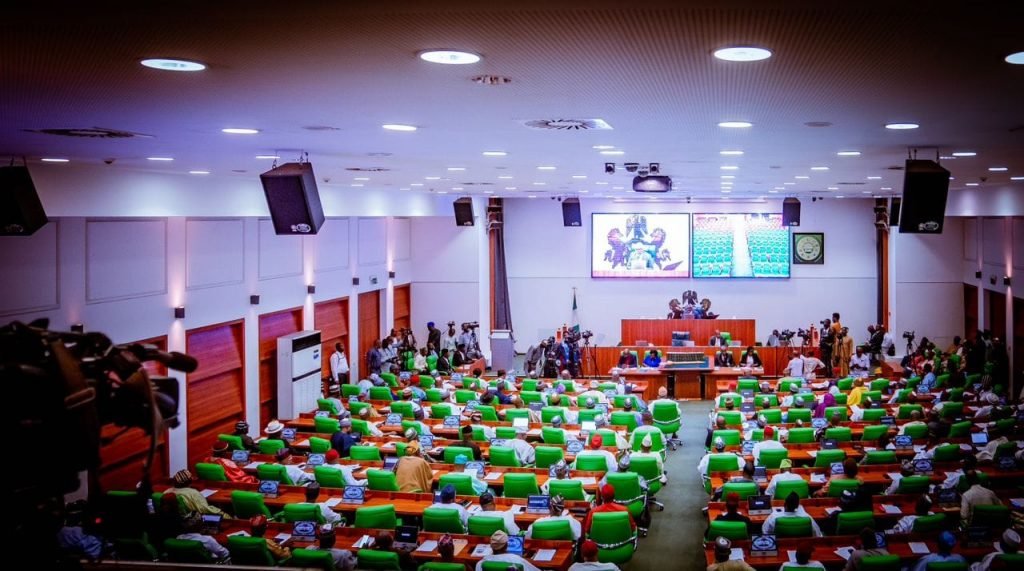Reps directs NERC to suspend implementation of new electricity tariff

The Nigerian Electricity Regulatory Commission (NERC) has been ordered by the House of Representatives on Tuesday to halt the implementation of the recently announced pricing increase.
In the recently released review of the Multi-Year Tariff Order, the House also demanded the suspension of further requirements.
It set up a special committee made up of the Committees on Power, Commerce, Delegated Legislation, and National Planning to organize a well-structured hearing on the price regulation of the Nigerian Electricity Supply Industry (NESI).
The hearing would be with the participation of the Minister of Power, Chairman and Commissioners of NERC, the chief executives of all electricity utilities in Nigeria, Presidents of the Nigeria Labour Congress and the Trade Union Congress (TUC), as well as leaders of chambers of commerce Nigeria.
The House resolved to appoint a well-regarded former regulator as a technical consultant to develop templates for determination of the “legality, reasonableness of the procedure adopted by NERC in approving the tariff increase and establishing the performance benchmarks for the Disco’s.”
It also resolved to authorize the consultant to work with the special committee to draft a bill to provide for administrative procedures that that entrench proper consultation and legislative review of process for tariff setting in the electricity and other public services in Nigeria.
These resolutions followed the adoption of a motion of urgent importance moved by Hon Nkemkanma Kama.
Kama said the legislative motion on increase in electricity tariff seeks to address key issues surrounding the sudden hike in electricity prices in Nigeria.
He said, “It highlights concerns over due process, fairness, and the impact on consumers. The motion aims to restore public trust, protect consumer rights, and ensure regulatory accountability in the Nigerian Electricity Supply Industry (NESI).
“The facts presented include the alarming tariff increase announced by the Nigerian Electricity Regulatory Commission (NERC) on April 1, 2023, resulting in a staggering 300% rise for certain consumers.
“However, what’s more concerning are the reports indicating discrepancies in customer categorisation and widespread complaints regarding inadequate service despite increased charges.
“This situation has not just sparked national anxiety, but it also threatens regulatory certainty and investor confidence in the sector, demanding immediate attention.”
He said the motion argues for legislative intervention, underlining the constitutional and moral obligations to address the crisis and alleviate the burden on Nigerian citizens.
“It places a strong emphasis on the legislative oversight role over NERC and the electricity utilities, stressing the need for fair and just pricing and consultation with stakeholders in tariff determination processes. This is not just a responsibility, but a duty we owe to our constituents.
“Key issues highlighted include the failure of due process in approving the tariff increase, concerns over discriminatory practices, and the disputed nature of government subsidies to electricity distribution companies (DISCOs).
“The motion proposes resolutions to suspend the recent tariff increases, establish a special committee for hearings involving relevant stakeholders, appoint a technical consultant to assess the legality and reasonableness of NERC’s procedures, and draft a bill to improve regulatory processes in tariff setting.
“Overall, this motion underscores the importance of legislative action to address the challenges facing the electricity sector and ensure fair treatment of consumers while promoting transparency and accountability in regulatory decision-making.”
Meanwhile, yesterday, during a hearing at the Senate Committee on Power, Adebayo Adelabu, Minister of Power, defended the tariff hike by stating that the Federal Government could no longer afford to provide subsidies on power.
He said for the sector to be revived, the government needs to spend about $10 billion annually in the next 10 years.
“This is because of the infrastructure requirement for the stability of the sector, but the government cannot afford that,” the minister had said.
Adelabu has stated that the electricity sector is attracting more investors due to the increase in electricity tariff for Band A customers.
